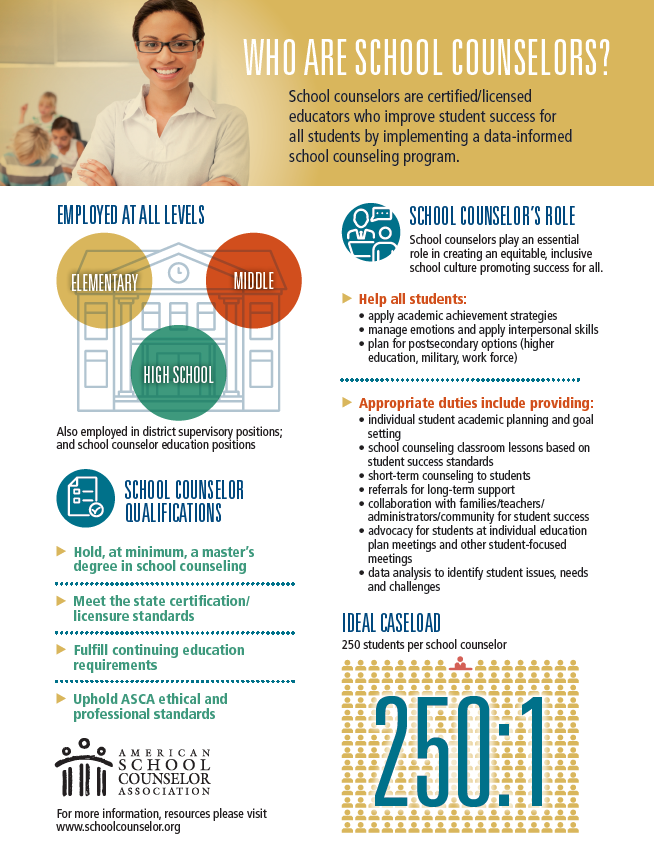
School Counseling
School Counselors follow the ASCA (American School Counseling Association’s) National Model, which includes the following three areas:
Academic
School counselors assist students with academic success strategies (study skills, time management strategies, organizational skills, test-taking tips, note-taking advice), academic and career plan creation, course selection, NCAA eligibility requirements, facilitation of student/teacher meetings and parent/student/teacher conferences, college search process, and much more.
Career
As a school counselor, I work with students on career exploration and assessments, college application process, resume and cover letter development, FAFSA guidance, college and scholarship essay collaboration, scholarship searches, work transition seminars, along with a number of other career related tasks.
Personal/Social
Students may require assistance in this area, in which school counselors conduct short-term and solution focused counseling sessions. Topics include, anger management, bullying, concerns with peers, difficulties at home, gender identity, as well as a variety of other concerns.
Delivery Methods
School counselors can employ a number of different ways to work with students, the most common are listed below:
-

Individual Meetings
Individual meetings take place in the privacy of the counselor’s office or another safe space where the students feels most comfortable. Counselors provide confidentiality to students except in cases where students may be a danger to themselves or others.
-
Small Group Sessions
Small groups are run on various topics based on student needs. Each small group has a focus or topic that is covered for between 5-10 sessions. The group follows guidelines that are agree on my all members, including confidentiality and respect of others.
-

Classroom & Large Group Guidance
Usually reserved for providing important information to a class, entire grade level or the entire student body, these can take place in the classroom or auditorium. While students are given the opportunity to ask questions, this type of format does not allow for confidentiality, therefore it is generally an information giving and gathering session.

